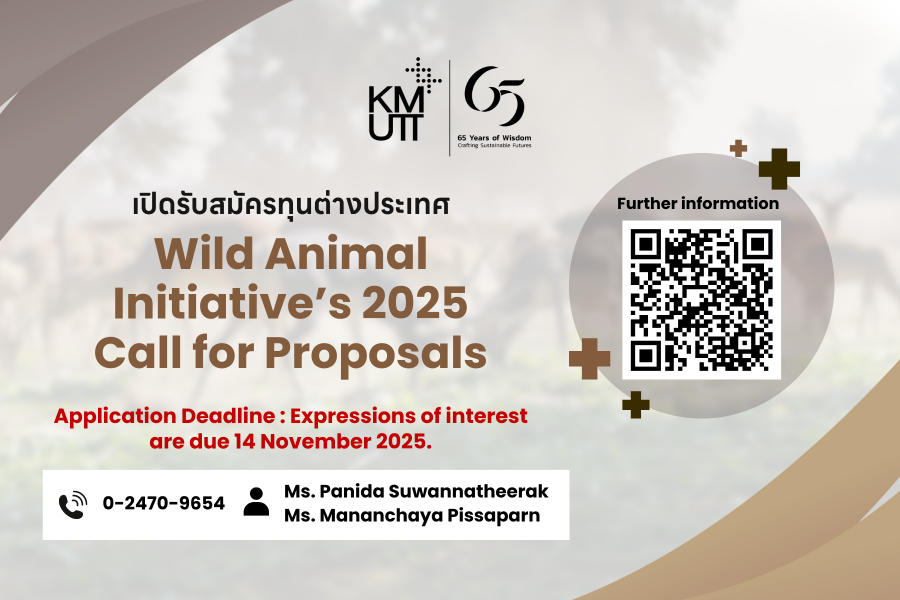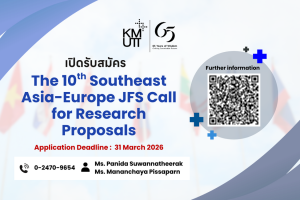Wild Animal Initiative’s 2025 Call for Proposals
Funding Organization: Wild Animal Initiative
Grant Types
• Seed Grant Program: Provides small amounts of funding to help researchers develop new ideas or build wild animal welfare questions into existing projects.
• Discovery Grant Program: Provides funding for projects that expand the evidence base of wild animal welfare, with a focus validating methods and applying them to new systems.
• Challenge Grant Program: Supports researchers exploring critical research questions that will unlock new avenues of wild animal welfare research and are not prioritized by other funders. Each round of Challenge Grants calls for projects within one or more specific themes. These flagship projects should be led by experienced principal investigators and demonstrate a high degree of relevance to high priority research areas, novelty, and methodological rigor.
• WAI Fellowship Program: Supports the growth of early career scientists
Priority Topics for Seed and Discovery Grants:
• Welfare indicator validation: Testing whether proposed welfare indicators and metrics respond in the biologically expected direction under conditions that are established to be positive or negative for welfare.
• Interspecific interactions: Trade-offs and synergies in the welfare of members of different wild animal species, including via predation, competition, or facilitation.
• Population dynamics: Welfare implications of population size relative to limiting factors at all scales, from resource limitation, to sibling competition, to cooperative defense, to disease transmission.
• Cause-specific mortality: How wild animals die, and what factors may directly and indirectly lead to their deaths.
• Landscape ecology: Variation in wild animal welfare across land cover types and in relation to geographical features, such as habitat edges.
• Cascade effects: Conceptual analysis of community dynamics to understand indirect effects of species and habitat parameters on others’ welfare.
• Welfare interventions: Intervening in ecological systems to improve wild animal welfare, including characterizing direct impacts and potential indirect impacts on non-target species. Promising examples include wildlife contraception and vaccination.
• Juvenile welfare: Investigating how welfare varies across life stages in wild animals, with a particular focus on early life stages, as these tend to be the most abundant.
• Invertebrate welfare: Assessing welfare in wild invertebrates.
• Fish welfare: Assessing welfare in wild fish.
Themes for Challenge Grants:
• Variation in environmental conditions and wild animal welfare
• Wild animal welfare and mortality rate
Eligibility:
• Eligible projects include those that are standalone, or those that add a wild animal welfare component to an existing non-Wild Animal Initiative funded project to broaden its scope.
• Projects must be led by a principal investigator who is affiliated with a university or other research institution (e.g. a government agency).
Grant Sizes:
• Seed Grants: Up to USD 10,000 for a maximum of 2 years
• Discovery Grants: USD 10,000–50,000 for a maximum of 3 years
• Challenge grants: USD 50,000–100,000 for a maximum of 5 years
• WAI Fellowship: Up to USD 180,000
Application Process: The application process involves submitting a short Expression of Interest (EOI) form at https://airtable.com/appjrrQyWM0IvyudQ/pagXulMLZuX1eArWC/form, which, if shortlisted, leads to an invitation for a full proposal.
Application Deadline: Expressions of interest are due 14 November 2025.
Further information: https://www.wildanimalinitiative.org/grants
For more information, please contact
Ms. Panida Suwannatheerak and Ms. Mananchaya Pissaparn
Tel. 02 470 9654
Email: researchfollowup@kmutt.ac.th



![Falling Walls Global Call [Deadline: 30 April 2025]](https://ripo.kmutt.ac.th/wp-content/uploads/2025/04/Falling-Walls-Global-Call-300x200.png)
